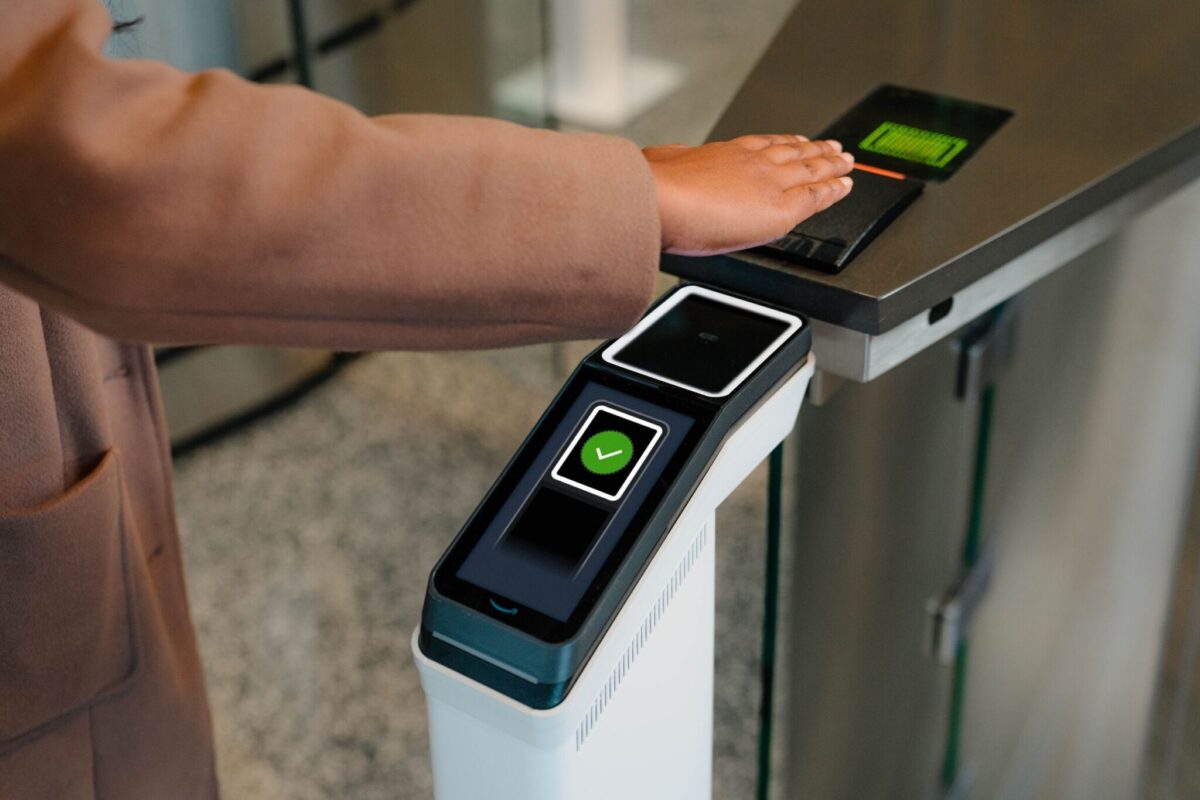Skift Take
It is becoming more clear that streamlined customer service is one of the biggest immediate opportunities for generative AI in the travel industry.
Amazon Web Services is having a conference all week in Las Vegas, and there have already been several reveals of next-generation offerings for the travel industry.
Amazon Web Services, a subsidiary of Amazon, is a cloud-computing company and it has been helping clients in travel and other industries develop ways to harness the latest advancement in AI, among its latest projects.
AWS Biometrics For ID and Entry
AWS revealed a new biometrics product called Amazon One Enterprise, a kiosk that scans the palm of the hand to verify a person’s identity. AWS said the product could be used to provide access for travelers and employees at airports, hotels, and more.
AWS said the technology “combines palm and vein imagery” and delivers a reading accuracy rate of 99.9999%. The tech uses AI to record the palm and create a unique signature that is associated with credentials like an employee ID. Users hover their palm over the reader on the kiosk to gain entry.
The tech is meant to help companies move away from traditional security access measures, like fobs and passwords, which can lead to security breaches.
IHG Hotels and Resorts said it is testing the product as a replacement for badges and manual review of guest IDs.
“With Amazon One Enterprise, our goal is to offer employees a new and convenient way to identify themselves and gain access to our software systems by hovering their palm over the Amazon One device. This approach will streamline the way we authenticate, give staff access to the tools they need, and make access easier than ever for them,” said Nick Krieble, global head of identity and access management for IHG, in a statement.
Generative AI for Customer Service
AWS revealed some new generative AI capabilities for Amazon Connect, a cloud-based platform that companies can use to streamline operations in customer-service contact centers.
- Amazon Q uses generative AI to recommend ways customer service agents can respond to customer questions and take action in real time.
An example from AWS: “Amazon Q in Connect can detect that a customer is contacting a rental car company to change their reservation, generate a response for the agent to quickly communicate how the company’s change-fee policies apply to this customer, and guide the agent through the steps they need to update the reservation.” - Amazon Connect Contact Lens uses generative AI to summarize conversations for every customer interaction, meant to help managers better evaluate performance and detect trends about customer sentiment.
- Amazon Lex is meant to enable contact center administrators to create new chatbots and pre-recorded voice messages in hours by using natural-language prompts. These more advanced chatbots are meant to answer commonly asked questions, as well as more accurately interpret less common responses, to reduce long wait times for customers who actually need to speak with an agent.
An example of the natural language that AWS gave: “Build a bot to handle hotel reservations using customer name and contact information, travel dates, room type, and payment details.” - Amazon Connect Customer Profiles is a feature that companies can use to create customer profiles based on data from a variety of other systems, meant to simplify what would otherwise be a timely manual task. With a customer profile, the agents could deliver more personalized customer service with better understanding of preferences and previous purchases and interactions.
Choice Hotels said it is using some of these generative AI capabilities in its customer service contact center.
“Today, our team spends significant time to understand customer data relationships and create data mappings. Data objects such as hotel booking or loyalty can be very complex with multi-level nesting,” said Michael Bennett, distinguished engineer at Choice Hotels, in a statement. “Using the Amazon Connect generative AI data mapping feature will reduce the onboarding time and provide guidance on which data columns to use for the unique identification of a profile. With it, we will onboard future specialized data sources much quicker and enrich our Guest 360 profiles with the data to power our real-time personalization initiatives.”
Delta Air Lines Building AI Tools with Amazon Bedrock
Adam Selipsky, CEO of Amazon Web Services highlighted in a keynote speech this week how Delta Air Lines is building AI tools with Amazon Bedrock. AWS recently made that platform generally available for companies to develop AI-powered apps without the need for coding by software developers.
He said that Delta is designing a tool to answer customer questions in a more conversational style, with access to info about Delta’s travel policies, real-time flight schedules, customer rebooking options, and airport conditions.
Delta said last year that it would be partnering with AWS to modernize the airline’s tech.
“For example, it could respond to simple questions like, ‘How many bags can I check on a Delta flight? And it can also [answer] more complex questions, like, “Can I carry my cat with me in the cabin to Jamaica?,” Selipsky said during the talk.
AWS also announced some new capabilities for Bedrock, including the new Guardrails feature to implement safeguards from inappropriate interactions between users and the apps.
Skift AI Travel Newsletter
AI coverage across travel sectors that’s focused on separating trendy moves from good ideas – in your inbox every Friday.
Have a confidential tip for Skift? Get in touch
Tags: amazon web services, artificial intelligence, AWS, choice hotels, delt air lines, ihg
Photo credit: Amazon Web Services has revealed a number of new AI tools for the travel industry. Pictured: new palm reader for ID verification. Amazon Web Services
